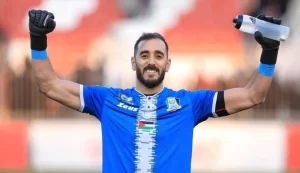A friend sent me this link, from Al Jazeera’s blog, I don’t know how my co-author would feel about it seeing as he is a Madrid fan, but hey, its a good read and sheds light on the situation in Gaza:
“Why are the people of Gaza apparently nuts about Barcelona Football Club?The question arose when I asked where I might be able to watch the big champions league match between Barcelona and Arsenal.First, dear reader, a confession. I am an Arsenal fan, and this is an important game. When I explained this to a colleague in the Al Jazeera Gaza office, he looked concerned. “You must be very careful, it could be dangerous to watch that game,” he said.It’s true, I had heard that Gaza could be dangerous, in various ways, but had not anticipated that watching a football match on TV, or my allegiance for Arsenal, would be a flash-point. “Everyone in Gaza is crazy about Barcelona, so you might want to keep a low profile,” he warned.After a week of driving round this crowded, impoverished and fascinating place, I can confirm that there are an awful lot of Barcelona replica kits being worn in Gaza, many of them bearing the name of the Argentinean superstar, Lionel Messi.A friend of mine says that people in Gaza support Barcelona, because they share a passion for the welfare of children, (Barcelona, atypically in the world of football, has rejected lucrative shirt sponsorship deals from major companies, and instead chooses to wear the logo of the UN’s children’s fund, UNICEF, for free).No prizes for guessing that my friend works for UNICEF. Nice theory, but I suspect the truth is more obvious; people in Gaza support Barcelona because they appreciate great football.Not only that, but Barcelona are winners, and people here don’t have too much to smile about. (Another intriguing theory I’ve heard is that the Palestinians of Gaza, proud of an identity forged under such difficult conditions, admire Barcelona because of its ties to Catalan nationalism, which has thrived despite disapproval from Madrid).Of course, the passion for a foreign football team may also be a reflection of how the people of Gaza are starved of any domestic action.Due to political tensions between Hamas and Fatah, all high level cup and league games have been suspended in Gaza since 2007.But this week, there was good news. Football administrators here have overcome their differences, and just announced the resumption of competitive matches; the first game takes place later this week. (Watch out for a TV report on this in the next few days on Al Jazeera English from my colleague Casey Kauffman).So, will the resumption of live football in Gaza weaken the hold of Barcelona on people’s imagination? Somehow, I doubt it. Gaza might have to come up with its own Lionel Messi first. “
Like other aspects of life in Gaza, the state of football is grim. Considering that Gaza has historically been our talent factory with its concentrated population and long established clubs, this is an even sadder reality. In the early days of the modern national team most players came from Gaza. Names like Ziyad Al Kord, Saeb Jendeya and Ramzi Saleh are household with Palestinian fans.
This onus has shifted to the West Bank with the resumption of the domestic league there resulting in a worrying talent drain. Top Gazan players have been signing on to West Bank and foreign clubs where they could make a living plying their trade. The players stuck inside the strip do not have it as good, they cannot even leave to play with the national team. With the Israeli blockade, there is little to no hope anything will get better. Of course the Israeli occupation detriments football in the West Bank as well as we have seen recently, but thats another topic for another day.



